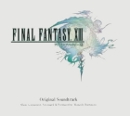
|
|
G.T.R :: Review by Chris
 |
Album Title: | G.T.R |
| Record Label: | Troubadour Records | |
| Catalog No.: | TTRC-0004 | |
| Release Date: | December 21, 1993 | |
| Purchase: | Buy at eBay |
Overview
After Great Wall provided a concept album inspired by a space shooter, G.T.R brought things back down to earth with a production inspired by motor racing games. The nonsensical Engrish description on the cover doesn't quite set the tone, but fortunately the music gets straight to the racing spirit. Under the direction of Shinji Hosoe, a team of Namco composers and freelancers offer a fusion album rich with rock and funk influences. It gives an impression of what racing game music could have been like back in the day had there not been so many restrictions and the results? Very good indeed.
Body
Shinji Hosoe's opener "G.T.R" instantly recreates that youthful feeling of excitement most get while playing on racing games. The 80s-inspired synth melody is so infectious and is bound to get people smiling while the light rock backing offers the fast constant rhythms ideal for cruising. Hayato Matsuo returns to create one of his characteristic funk compositions, "G.U.T"; with a complex web of irregular rhythms and discords, the composer seems to portray the mechanical features of the car's engine rather than the excitement of using it, but still takes listeners on quite a ride. His student friend Motoaki Takenouchi keeps up the grit with his heavily punctuated bass lines on "Gosling"; however, the forefront of the track contrasts jazzy trumpet blares with rocking electric guitar riffs. It should be aural bliss for those who don't mind living on the heavy dissonant side of life.
Following Takayuki Aihara's "Navigation Seat", Hitoshi Sakimoto offers a break from all the high energy tracks with an emotional reflection on "S.T.E". This is by far the most mesmerising and virtuosic solo piano composition he's ever created, so the album will be worthwhile for his hardcore fans. Afterwards Kenichi Koyano effectively blends the introspective piano work inspired by his friend Hitoshi Sakimoto, funk influences reminiscent of earlier tracks, and even some racing sound sound effects. This leads nicely into Masahiro Fukuzawa's "Cruisin'", a catchy and straightforward keyboard-led track, and Naoko Mikami's "Beady Eyes", a blend of dissonant piano chords and funk bass. Rather than preluding his Ridge Racer style, Nobuyoshi Sano offers a serene fusion of synthpads and piano on "Overland". Overall the piano focus definitely helped to add to the emotion and variety in the centre of the album.
Bringing the journey towards its natural end, Takayuki Aihara's second contribution "Wendy Touch" is an uplifting jazz fusion track. The brisk rhythms and punctuated textures are just right for the driving while some of the additional sections such as from 1:55 are just ecstatic. Hosoe returns with another light-hearted funk track, this time bringing decently written saxophone parts to the forefront. It's not as flat out memorable as "G.T.R" but likeable nonetheless. Takayuki Ishikawa, aka DJ Taka, offers a chillout track prior to the conclusion of the album; probably misspelt on the cover, "Addres" features close harmonisation between piano and guitar giving an interesting timbre overall. Hosoe's ever-reliable professional partner Ayako Saso finishes things off with a further dash of hard funk on "Sidewing". It's a bit more repetitive than other tracks on the album, but that is probably to emulate how game music usually sounds during a long credits roll.
Summary
Although stylistically consistent relative to its predecessors, G.T.R. still packs a lot of musical variety into its one hour playtime. That's thanks to the high production values of all eleven composers and the overall direction by Shinji Hosoe. Those who enjoy funk and jazz fusion will be most at home here, although there are other additions such as piano solos, chillout tracks, and pop anthems. Anyone who enjoys the intense yet exciting fusion sounds of early racing games might find this technologically liberated album a fulfilling experience. Overall, another fine addition to the Troubadour line.

